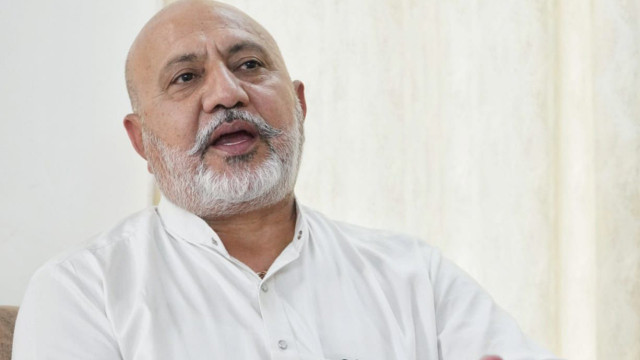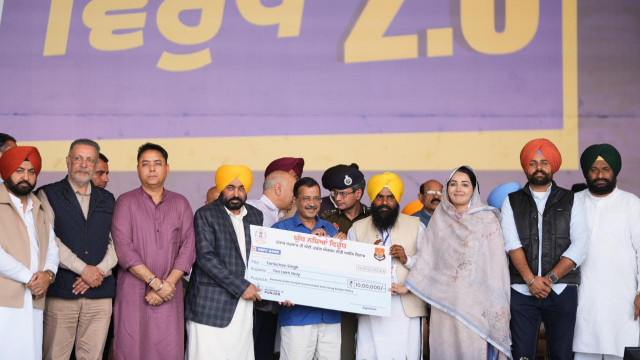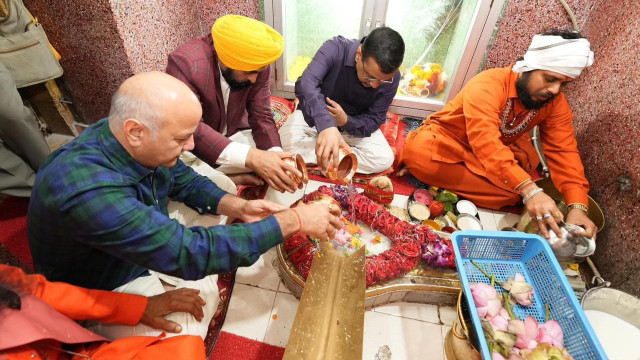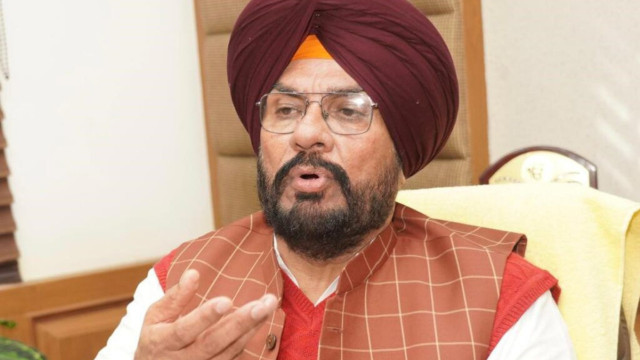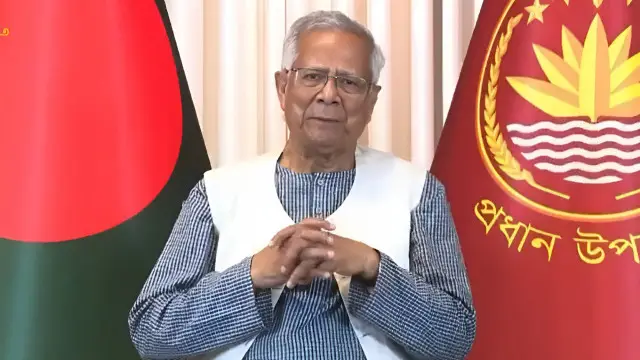Punjab Youth Quit Corporate Jobs, Join Farming Revolution with Mann Government’s Subsidy and Polyhouse Growth
In Punjab, educated youth are leaving jobs to embrace farming. With Mann government subsidies and polyhouse technology, profits reach ₹14 lakh, marking the rise of a modern agricultural revolution in villages.

Punjab News: Punjab is witnessing a powerful change where educated youngsters are turning away from city jobs to take up farming. This new trend is being fueled by the farmer-friendly policies of Chief Minister Bhagwant Mann. More than 1,200 youth have already embraced farming with polyhouses, earning annual profits between ₹12 and ₹14 lakh. Unlike earlier times when agriculture meant uncertainty, today’s farming is a business with strong returns. For the first time in decades, farming in Punjab is being seen as a career of pride and profit, not of struggle.
Is Farming Becoming a Modern Business Model?
Agriculture in Punjab is no longer dependent only on traditional methods. With subsidies covering 50% of polyhouse costs, many graduates are entering farming as entrepreneurs. Farmers are now combining government schemes with modern technologies to increase production. They no longer wait for rain or luck; instead, they use climate control and drip irrigation for stability. The idea of farming as a professional business is spreading quickly. Engineers, IT workers, and commerce graduates are shifting their lives to fields, proudly calling themselves agri-businessmen.
Can One Man Spark an Entire Movement?
The story of Harbir Singh from Sarabha village is inspiring countless youths. A trained electrical engineer, Harbir left his corporate job to become a farmer. Supported by Punjab’s Horticulture Department, he built polyhouses under the National Horticulture Mission. Today, he grows seedless cucumbers, colourful capsicum, muskmelons, and fenugreek, earning up to ₹14 lakh annually. His journey shows that farming is not only about survival but also about building a profitable career. Harbir’s decision has made him a role model for thousands of aspiring young farmers.
Is Government Support the Key Driver Here?
Punjab’s Horticulture Department is at the centre of this transformation. Led by Minister Mohinder Bhagat, the department is pushing crop diversification and scientific farming practices. Director Shailender Kaur confirms that the Kartarpur Centre of Excellence is training farmers with hands-on techniques. Farmers learn how to set up polyhouses, manage crops, and sell them in markets. The department’s continuous support ensures that the benefits do not stop at subsidies. Instead, farmers are guided step by step until they achieve consistent profits and independence.
Is Hard Work Enough Without New Technology?
Farmers agree that modern farming is built on both dedication and technology. Harbir Singh recalls how he constantly contacted Horticulture officers for solutions to farming issues. Through modern irrigation, pest control, and climate systems, his yields grew higher than ever before. Polyhouse farming shields crops from harsh weather, allowing steady harvests through the year. As a result, farmers now get better prices in markets, competing with urban incomes. The combination of effort, knowledge, and technology is proving to be the true recipe for rural prosperity.
Can Punjab Regain Its Lost Pride?
For years, Punjab saw its youth leaving villages for jobs abroad, leading to despair at home. But the trend is now reversing. With profits and respect returning to farming, many are proudly staying back. Polyhouses spreading across Punjab symbolize this revival of confidence in the soil. The vision of ‘Rangla Punjab,’ a prosperous and vibrant state, is becoming reality again. Farming is not only about feeding families anymore—it has become about growth, ambition, and building futures with dignity inside the villages.
Is Punjab Setting an Example for India?
Experts say Punjab’s farmer revolution can guide the rest of the country. If policies, subsidies, and training align in other states, more youth will return to agriculture. Farmers are showing that agriculture, when modernized, can match or even surpass corporate careers. The Mann government’s initiatives have created not just higher earnings but also a renewed sense of confidence. Punjab is proving that farming, once seen as uncertain, can now be India’s business of the future. This story may well define India’s rural transformation ahead.




